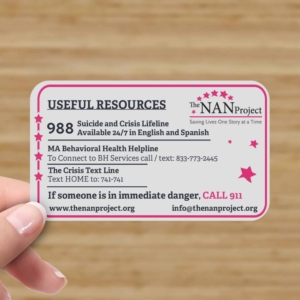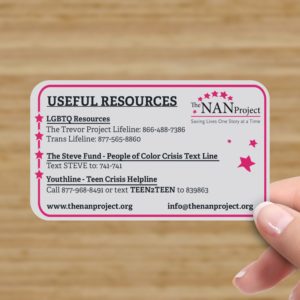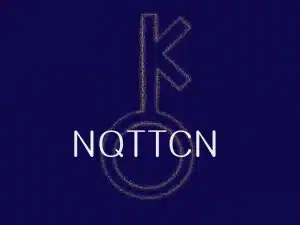The NAN Project Highlights Resources for Black Youth
On February 10th, 2023, The Center for Disease Control released “Notes from the Field: Recent Changes in Suicide Rates, by Race and Ethnicity, and Age Group – United States, 2021”. The data shows suicide rates increased by 19.25% during 2018-2021. For persons aged 10-24 suicide rates showed a worrying increase and, more specifically, among black youth aged 10–24 years, the rate of suicide increased 36.6% during 2018–2021. We highly recommend reading this report which can be found here: https://www.cdc.gov/mmwr/volumes/72/wr/mm7206a4.htm.
The overall message we gather from this research is that suicide continues to be a public health issue, and continues to be an increasing threat to black youth across the country.During this Black History Month, we highlight three resources we rely upon to continue our education in pursuit of racial justice, inclusion, and suicide prevention for black youth across Massachusetts.
 ★The Steve Fund: https://www.stevefund.org/
★The Steve Fund: https://www.stevefund.org/
During our Peer Mentor presentations, we distribute resource cards that can fit inside a wallet or behind a phone case. We tell students to carry them everywhere they go so they can be prepared with a plethora of mental health resources for themselves or a friend at any time. On this card, we have The Steve Fund.

Front of Resource Card
The Steve Fund is the nation’s leading organization for young people of color with the overarching goal of creating a “robust national dialogue” centered on young people of color and their mental and emotional health and well-being. The Fund has a plethora of resources through their “Knowledge Center” located on their website. During our presentations, we highlight the Crisis Text Line service that connects young people of color to a culturally competent crisis counselor. Just text STEVE to 741-741 and someone will be on the other line in no time! The Steve Fund has partnered with the Crisis Text Line to provide this service 24/7, meaning any time of day or night a young person can reach out with questions about their own mental health, a friend’s health, and/or if they have general questions about mental health.

Back of Resource Card
The Fund also has a podcast “Speak On It!” that you can find at this link: https://www.stevefund.org/speakonit/. The podcast brings students and professionals together to discuss topics related to mental health and the challenges that Black, Indigenous, and People of Color may face during their academic and professional careers. We cannot recommend The Steve Fund enough!
 ★ National Queer and Trans Therapists of Color Network: https://nqttcn.com/en/
★ National Queer and Trans Therapists of Color Network: https://nqttcn.com/en/
The National Queer and Trans Therapists of Color Network describes themselves as: “a healing justice organization that actively works to transform mental health for queer and trans people of color in North America”. Since May 2016, NQTTCN has been building a network of mental health practitioners as well as a Mental Health Fund for those in need of financial assistance. The Founder, Erica Woodland, created this organization as a call to mental health practitioners to deepen their understanding of healing justice and create communities of care with, and an understanding for, Queer and Trans People of Color (QTPOC). They share resources for organizations seeking to uplift QTPOC communities through healing justice initiatives. A unique feature offered through their website is a directory of practitioners that you can search by region. And, if you are a therapist or provider that identifies as a QTPOC and are a licensed mental health professional, you can fill out an online application to become part of the directory! The directory can be found here: https://nqttcn.com/en/mental-health-directory/. The NQTTCN is doing invaluable work for communities of Queer and Trans people of color who are at unique risk of violence and suicide. Please check them out and support their work if you can!
★Year Up: https://www.yearup.org/
Year Up is an organization striving to “close the “Opportunity Divide” by ensuring young people gain the skills, experiences, and support that will empower them to reach their potential through careers and higher education”. Year Up offers a three step program that allows young people to work closely with expert instructors to gain career-building knowledge while being in close contact with a team of support to ensure success and offer mentoring along the way. Supporting young people start and advance in their careers while being assisted by a mentor creates protective factors; factors that contribute to a person’s ability to maintain their mental health and reduce their risk of suicide. Being part of a community that wants to see them succeed, creating financial stability, and inspiring hope for the future has been proven to prevent suicide. Year Up’s program “Black Opportunity Alliance” creates a platform for Black philanthropists to help cultivate the future of black leaders. With 35% of Year Up’s young people are black, having the support of older, Black business-people and philanthropists encourages and financially supports a younger generation of black youth to achieve their career goals. You can find more information on the program here: https://www.yearup.org/blackopportunityalliance.
We are inspired by Year Up’s unrelenting commitment to diversity, equity, inclusion, and belonging. Creating a focus on these key themes contributes to the longevity of youth in this program and their future success. Read more about it here: https://www.yearup.org/about/commitment-to-diversity. Check out Year Up and support them in whatever way you can! Supporting this organization means supporting black youth pursuing their career goals and building hope for the future!
We have gathered three amazing resources that we utilize to inform our work and create a world where all are able to thrive and create hope for the future. But the list does not end here! What resources do you use to educate yourself and continue the work of destigmatizing mental health challenges? Share them with us! It is our responsibility as stewards in the field of mental health and in destigmatizing mental health to maintain a racial and intersectional lens.
Our team is committed to educating and raising awareness in order to amplify voices that are both historically and too often underrepresented, denied, and disbelieved.
 ★ National Queer and Trans Therapists of Color Network:
★ National Queer and Trans Therapists of Color Network: 